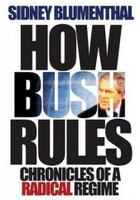The 'American Way'
"The USA wouldn't be stuck in conflicts abroad if only we could stop believing that the American way is the best way." Exactly. In his recent article for AlterNet John Dolan couldn't be more right.
Excerpt from the article:
Montaigne tried to learn from the other cultures Europe was encountering around the world in the 1500s, rather than simply condemning them for all the ways in which they differed from Europe. He compared the cruelties of cannibal tribes with those of European "justice." His point was not that one culture was superior to the other, but that every human ever born finds it dangerously easy to revile the savagery of other tribes, but very difficult to see the brutalities of their homeland: "...while we quite rightly judge [the cannibals'] faults, we are blind to our own."
It is this nationalist psyche the majority of Americans have, that are sheltered from the rest of the world and brings conflict and irritation to other cultures. As Dolan states, "even if the [Iraq] war really was about liberation, it was an arrogant invasion born of the ancient belief that our tribe is the only one that knows how life should be lived." Precisely.
Read the full article.



